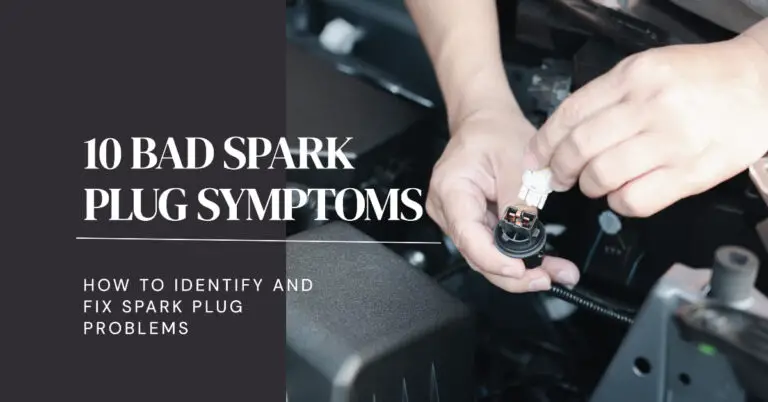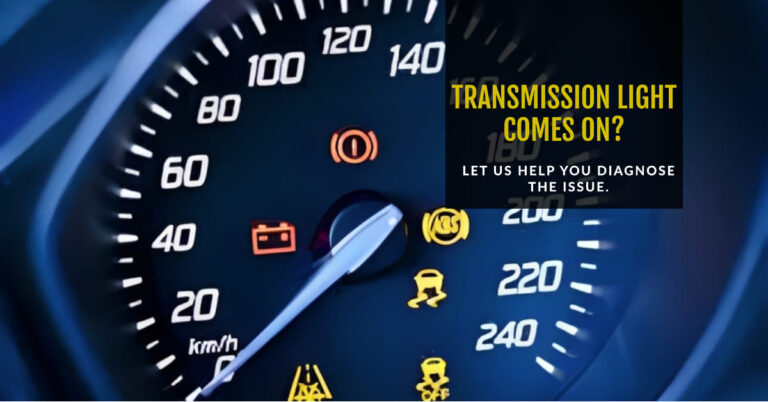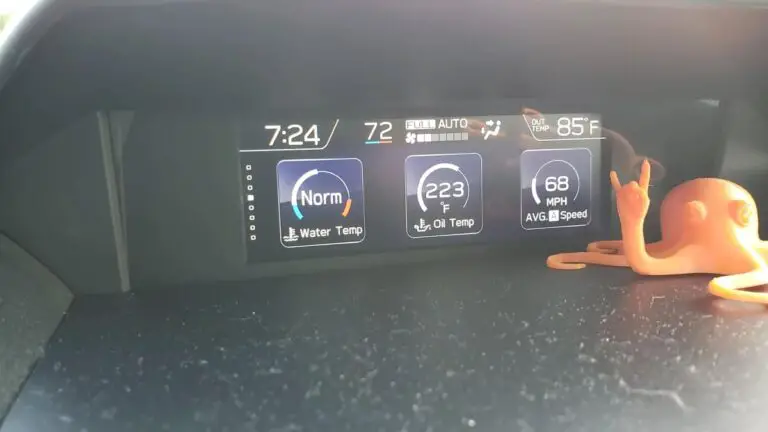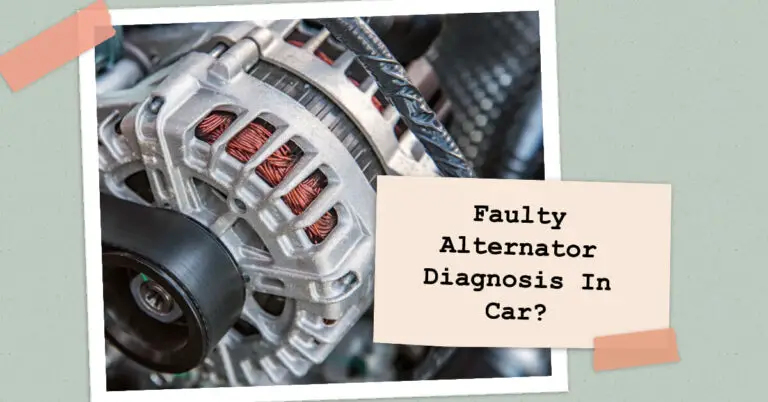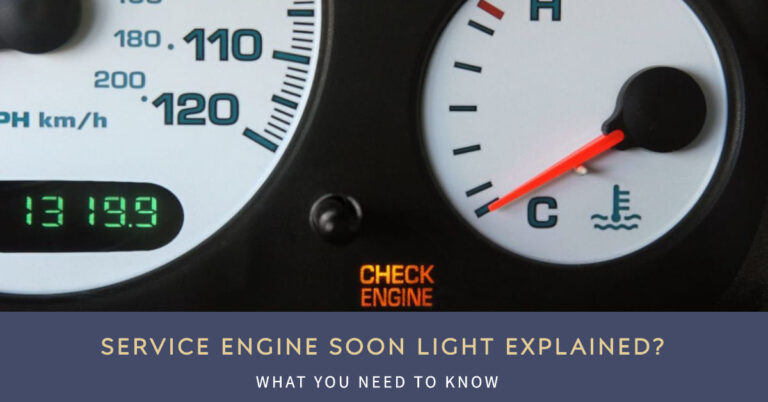5 Signs of a Cracked Engine Block: How to Detect and Fix the Issue in 2024

A cracked engine block is a serious issue that can cause significant damage to your car and even make it unsafe to drive. Unfortunately, it’s not always easy to tell when your engine block is cracked, as the symptoms can be subtle and easily overlooked. In this article, we will discuss the five most common signs of a cracked engine block that you should be aware of.
One of the most obvious signs of a cracked engine block is overheating. If your car is running hotter than usual or the temperature gauge is consistently in the red zone, it could be a sign that your engine block is damaged. Other symptoms of a cracked engine block include poor performance, oil and coolant leaks, and evidence of these two liquids mixing. If you notice any of these signs, it’s important to have your car inspected by a mechanic as soon as possible to avoid further damage.
In addition to discussing the symptoms of a cracked engine block, we will also explore the causes and potential repair options. By understanding the underlying issues that can lead to a cracked engine block, you can take steps to prevent this problem from occurring in the first place. Whether you’re a seasoned car owner or a new driver, this article will provide you with the knowledge you need to keep your engine block in good condition and avoid costly repairs down the road.
Table of Contents
What is an Engine Block?
An engine block is the main component of an internal combustion engine. It is a large metal casting that contains the cylinders, pistons, and other components that make up the engine. The engine block is typically made of cast iron or aluminum and is designed to withstand high temperatures and pressures.
The engine block is responsible for a number of important functions, including:
- Supporting the weight of the engine and its components
- Providing a rigid structure for the cylinders and pistons
- Housing the crankshaft and camshaft
- Providing a mounting point for the cylinder head and other components
- Helping to dissipate heat from the engine
The engine block is a complex component that requires precision manufacturing and careful design. It must be strong enough to withstand the stresses of high-speed operation while also being lightweight and efficient.
In addition to its primary functions, the engine block also plays a role in the overall performance and efficiency of the engine. By optimizing the design and materials used in the block, engineers can improve fuel efficiency, reduce emissions, and increase power output.
Signs of a Cracked Engine Block
A cracked engine block is a serious problem that can lead to costly repairs or even engine replacement. Knowing the signs of a cracked engine block can help you catch the problem early and prevent further damage. Here are the five most common signs of a cracked engine block:
1. Visible Damage
One of the most obvious signs of a cracked engine block is visible damage. You may notice cracks or holes in the engine block itself, or in other parts of the engine such as the cylinder head or exhaust manifold. In some cases, the damage may be so severe that you can see coolant leaking from the engine.
2. Overheating Engine
An overheating engine is another common sign of a cracked engine block. When a crack occurs, coolant can leak out of the engine, causing the engine to overheat. If you notice that your engine is running hotter than normal, or if your temperature gauge is reading in the red zone, it may be a sign of a cracked engine block.
3. Coolant Leaks
Coolant leaks are a common symptom of a cracked engine block. If you notice that your coolant level is low, or if you see coolant leaking from your engine, it may be a sign of a cracked engine block. In some cases, the coolant may leak into the engine oil, causing the oil to become contaminated and potentially causing engine damage.
4. Engine Misfires
Another sign of a cracked engine block is engine misfires. When a crack occurs, air can leak into the engine, causing the fuel mixture to become too lean. This can lead to engine misfires, rough idling, and poor acceleration.
5. Low Compression
Low compression is a common symptom of a cracked engine block. When a crack occurs, air can leak out of the engine, causing a loss of compression. This can lead to a loss of power, poor fuel economy, and other engine problems.
Causes of a Cracked Engine Block
A cracked engine block can be caused by a variety of factors, including overheating, freezing, corrosion, and mechanical damage. In this section, we will examine each of these causes in more detail.
1. Overheating
One of the most common causes of a cracked engine block is overheating. When an engine gets too hot, the metal can expand and contract rapidly, causing thermal stress on the block. This stress can eventually lead to cracking. Overheating can be caused by a variety of factors, including a malfunctioning cooling system, a faulty thermostat, or a blocked radiator.
2. Freezing
Freezing is another common cause of a cracked engine block. When water freezes, it expands. If there is too much water in the cooling system and not enough antifreeze, the water can freeze and expand, causing the block to crack. This is why it is important to use the correct ratio of water to antifreeze in your cooling system.
3. Corrosion
Corrosion can also cause a cracked engine block. Over time, the metal in the block can corrode and weaken, making it more susceptible to cracking. Corrosion can be caused by a variety of factors, including exposure to salt, moisture, and other corrosive substances.
4. Mechanical Damage
Mechanical damage can also cause a cracked engine block. This can include anything from a manufacturing defect to damage caused by an accident or improper maintenance. Mechanical damage can weaken the metal in the block, making it more susceptible to cracking.
How to Diagnose a Cracked Engine Block?
A cracked engine block is a serious issue that can lead to costly repairs or even the need for a new engine. It is important to diagnose a cracked engine block as soon as possible to prevent further damage. Here are some steps to follow to diagnose a cracked engine block:
- Check for Coolant Leaks: One of the most common signs of a cracked engine block is a coolant leak. Check for any puddles of coolant under the vehicle or any signs of coolant on the engine or radiator. If you notice any leaks, it may be a sign of a cracked engine block.
- Inspect the Oil: Another sign of a cracked engine block is oil that looks milky or foamy. This is caused by coolant mixing with the oil and can be a sign of a cracked engine block.
- Check the Compression: A compression test can help diagnose a cracked engine block. If the compression is low in one or more cylinders, it may be a sign of a cracked engine block.
- Look for Smoke: If you notice smoke coming from the exhaust pipe, it may be a sign of a cracked engine block. This is caused by coolant leaking into the combustion chamber and burning with the fuel.
- Listen for Strange Noises: A cracked engine block can cause strange noises such as knocking or ticking. If you hear any unusual noises coming from the engine, it may be a sign of a cracked engine block.
Repairing a Cracked Engine Block
If a cracked engine block is diagnosed, it’s important to repair it as soon as possible to avoid further damage to the engine. The cost of repairing a cracked engine block will typically range from $1,000 to $3,000. However, in some cases, repair might not even be an option, and you might need a new engine instead. If engine replacement is required, then your bill will go even higher. In that case, you can expect to pay somewhere between $3,000 to $5,000.
There are a few different methods for repairing a cracked engine block, including welding, brazing, and using a sealant. Welding and brazing are more permanent solutions, but they require specialized equipment and expertise. Using a sealant is a simpler and more affordable option, but it’s only a temporary fix, and the crack may reappear over time.
When using a sealant, it’s important to follow the manufacturer’s instructions carefully. The sealant should be applied to a clean and dry surface, and it should be allowed to cure completely before the engine is operated. It’s also important to note that some sealants may not be compatible with certain types of antifreeze, so it’s important to check the product specifications before use.
If the crack is too severe to be repaired, or if the engine block is too damaged, then engine replacement may be the only option. In this case, it’s important to choose a reputable mechanic or dealership to perform the replacement. The replacement engine should come with a warranty, and the installation should be performed by a qualified professional.
Preventing a Cracked Engine Block
To prevent a cracked engine block, it is important to keep up with regular maintenance and take precautions to avoid overheating or freezing of the engine.
One of the most important things to do is to make sure the engine is properly lubricated with clean oil. Regularly changing the oil and oil filter can help prevent buildup and contamination that can cause excessive heat and pressure on the engine block.
Another key factor in preventing a cracked engine block is to keep the engine from overheating. This can be done by making sure the cooling system is working properly and not leaking. It is also important to avoid driving in extreme temperatures or towing heavy loads for extended periods of time.
In addition, using the right type of coolant and maintaining the proper coolant level can help prevent the engine from freezing in cold temperatures. It is also important to avoid using water as a coolant, as it can freeze and expand, causing damage to the engine block.
Regularly inspecting the engine for signs of wear and tear, such as cracks or leaks, can also help catch potential issues before they become major problems. Finally, avoiding excessive idling or revving the engine can help prevent unnecessary stress on the engine block.
Conclusion
So, a cracked engine block is a serious issue that can cause a variety of symptoms, including coolant leaks, poor engine performance, engine overheating, white smoke from the exhaust, and engine oil contamination. If you suspect that your engine block is cracked, it is important to take your vehicle to a trusted mechanic as soon as possible to diagnose and repair the issue.
While there are some DIY fixes that may temporarily address the issue, such as using a sealant or epoxy, these are not long-term solutions and can actually cause more harm than good. A professional mechanic will be able to properly diagnose the issue and recommend the best course of action, whether it be repairing the crack or replacing the engine block altogether.
It’s important to note that preventing a cracked engine block is much easier than fixing one. Regular maintenance, such as monitoring coolant levels and avoiding overheating, can help prevent cracks from forming in the first place. Additionally, addressing any symptoms of a potential issue as soon as possible can help prevent further damage and costly repairs down the line.
Overall, a cracked engine block is a serious issue that should not be ignored. By taking preventative measures and addressing any symptoms of a potential issue as soon as possible, drivers can help ensure the longevity and reliability of their vehicle.
FAQs
Can I still drive my car if I have a cracked engine block?
It is not recommended to drive your car if you suspect a cracked engine block. Continuing to drive with a cracked engine block can cause further damage to your engine and potentially lead to a costly repair.
How can I tell if my engine block is cracked?
There are several signs that may indicate a cracked engine block, including coolant leaks, overheating, poor performance, oil and coolant mixing, and excessive bubbles in the coolant. If you suspect a cracked engine block, it’s important to have it inspected by a qualified mechanic.
Can a cracked engine block be repaired?
In some cases, a cracked engine block can be repaired. However, the repair process can be expensive and time-consuming. It’s important to consult with a qualified mechanic to determine the best course of action for your specific situation.
How much does it cost to repair a cracked engine block?
The cost of repairing a cracked engine block can vary depending on the severity of the damage and the type of vehicle. In general, the repair process can cost several thousand dollars.
How can I prevent a cracked engine block?
Regular maintenance and inspections can help prevent a cracked engine block. It’s important to keep your engine properly lubricated and cooled, and to address any issues as soon as they arise. Additionally, avoiding harsh driving conditions and excessive heat can help prolong the life of your engine.

